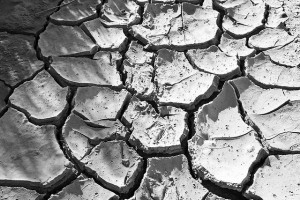Want America to Remain Exceptional? Try Leading on Climate Change
This article is written by Greg Willsey, Partner at Monogram Capital Partners.
Americans have always been a very patriotic people, and I am no exception. Having traveled to over 60 countries and done business in many, I am always excited to come back to what I consider to be the best place to live on the planet. My feelings are not unique. In a recent Pew Research Center Poll, 86% of Americans affirmed their belief that the United States either stands above all other countries in the world or is at least one of the greatest countries in the world. And if you follow the political campaigns of our current presidential nominees, you will regularly hear them state their belief in American Exceptionalism and their plan to make America even greater in the broader world context. This is often referenced in regard to military, geopolitical and economic contexts. I would like to make the case that until we acknowledge and act upon climate change, we have little chance of projecting the same American greatness into the future and should not feel so happy ourselves. Climate change could cause one of the largest humanitarian crises the world has ever seen, and we are putting hundreds of millions of people around the world at great risk—preferring to debate the science and politics while many of those who are most at risk get no say in the matter and had little to do with creating this great risk themselves.
I do not want to use this article to debate the science of global warming. Suffice it to say that the overwhelming majority of scientists across the globe believe the planet is warming due primarily to human activity. For those not familiar with the greenhouse effect, it is nature’s way of using greenhouse gases such as carbon dioxide and methane to regulate the Earth’s temperatures. According to NASA, if there were no greenhouse effect at all, the Earth’s average surface temperature would be very chilly (0 degrees Fahrenheit) instead of the much more comfortable 59 degrees that it is today. If you don’t believe that greenhouse gases warm the planet and regulate its temperatures, I would encourage you to look at the Moon, which has little atmosphere and whose surface can dip below negative 240 degrees. Or alternatively look at Venus, which has a thick atmosphere consisting almost entirely of carbon dioxide. Its average surface temperature is 864 degrees (very little of this is driven by Venus being a bit closer to the Sun). My point is not that we are remotely likely to hit these extreme levels, but rather just to show that greenhouse gases can and do have a tremendous impact on average surface temperatures and fluctuations
 The Greenhouse Effect | Will Elder, National Park Service
The Greenhouse Effect | Will Elder, National Park Service
Over the past couple centuries since the Industrial Revolution, humans have increased the concentrations of carbon dioxide in our atmosphere by over 38% and methane by over 148%. Put another way, humans have increased the concentration of carbon dioxide in the atmosphere from ~280 parts per million in 1750 to ~400 parts per million today. This figure is still climbing steadily. During this same period, the average surface temperature of the Earth has increased meaningfully. In fact, 13 of the 15 hottest years on record have all occurred since 2000. The Earth does undergo natural fluctuations, but the rate of temperature increase we are seeing now is unprecedented versus any other period over thousands of years of data. And while some argue that there are natural feedback loops, it is important to note that as more snow and ice, which reflect sunlight, melt the Earth absorbs even more sunlight. Despite this evidence, and there is a tremendous degree more, though admittedly not enough to be 100% sure, I would ask that for the purpose of this article let’s take the standard down a notch. Let’s just agree that it is very possible, if not probable that human activity is causing the Earth to warm. Any politician who tells you this is simply not possible is acting irresponsibly by lying to you.
Instead of focusing on the drought-stricken lands in California or the increasingly violent storms to hit the U.S. East Coast, I would ask that for this article we look at some of the plausible—and most scientists believe quite likely—outcomes that climate change could have on other nations. Let’s start with Indonesia, a country with 250 million people living across thousands of islands, many of which do not rise more than a few yards above sea level. Over the past several decades, 24 of these islands have already been engulfed by rising sea levels, and according to the BBC there is a very real risk that as many as 1,500 islands could be under water by 2050, including particularly vulnerable areas where tens of millions of people live. In fact, in Indonesia alone there is a material risk that our activity could displace over 42 million people. A three-foot rise in sea levels would put half of Jakarta, the capital, under water. The Maldives, one of the world’s treasures but whose highest point is only 8 feet above sea level today, could be completely under water in the not-too-distant future. There are thousands of other examples of islands and coastal communities spanning the globe—homes to tens of millions of people, many of who are poor and largely defenseless—that could plausibly vanish from the map as sea levels rise. A report released by The World Bank in the past few days estimates that rising global temperatures could submerge the homes of over half a billion people.
Another substantial impact of global warming, though perhaps less publicized, is the increase in acidity that increased atmospheric concentration of carbon dioxide creates in seawater. Carbon dioxide is absorbed by the oceans in a chemical reaction that increases the acidity of the water. Warmer and more acidic seawater has the potential to disrupt everything from coral reef formation, which is critical to the functioning of our marine environment, to local fishing industries. Ocean acidification impacts coral reefs by preventing corals from absorbing the calcium carbonate that they need to maintain their skeletons and the stony skeletons that support corals and reefs. These effectively dissolve, causing bleaching of the reefs and extermination of small sea creatures that have skeletons, a key part of the food chain for larger fish. Poor coastal and island communities, who depend on fishing to sustain and provide for their families, are projected to see up to a 40% decline in fish catches due to warmer and more acidic water by 2050. There is a great deal of debate on whether ocean acidification could also lead to a severe disruption of major global currents such as the Gulf Stream, which could have devastating impacts on Europe. Scientists have uncovered increasing evidence that this has already begun.
Climate change also has the strong potential to increase the frequency and intensity of storms, such as Hurricane Patricia—the most powerful hurricane ever recorded. Islands in the Caribbean and small communities in Mexico and in Southeastern Asia do not have the infrastructure or early warning systems that we have in the United States. These storms have the real potential to decimate poor families who did nothing to contribute to the problem. One of my key points here is that many of those who could be most impacted—villagers on small coastal islands or the impoverished trying to earn a wage in the Philippines or Malaysia—have had little part in creating the risk that they must face.
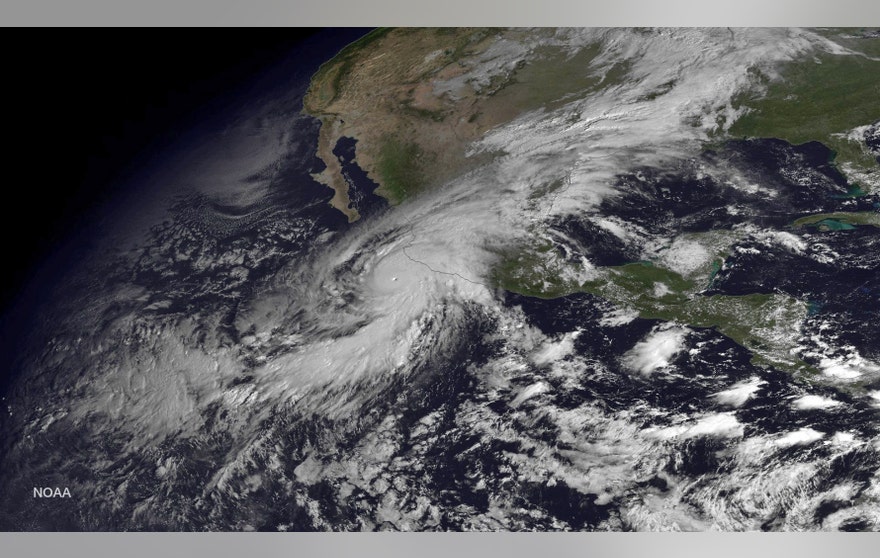
Hurricane Patricia | AP
If you follow the news closely or live in California, you have likely heard a great deal about the impact that climate change is having on weather patterns and extended droughts. Our news often focuses more on the gallons of water required to produce an almond or on people receiving huge fines for over-usage of water, rather than on what is going on in the rest of the world. However, perhaps some of you may have heard about India having an excessive heat wave this June that was one of the top five most deadly in history. Or the heat wave in Europe several 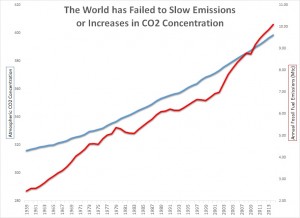 years ago that killed over 30,000 people, many the poor and elderly. Or Australia, where some experts predict temperatures to rise by 9 degrees Fahrenheit by 2090 if we don’t greatly cut back emissions. This is having a huge impact on crops, beef, chicken and even kangaroo. Or the inhabitants of North Africa, who are seeing the size of the Sahara desert increase exponentially, displacing millions of people on the desert’s borders and creating greater conflict over scarce resources. In just the past few weeks, there have been reports that climate change could bring temperatures in a sizeable portion of the Middle East beyond the limit of human survival. If you remember your world history classes about Mesopotamia and the Tigris-Euphrates Valley, this is the same area where human history began, and within a century it could be uninhabitable. The World Bank recently estimated that climate change could push more than 100 million people into extreme poverty by 2030—not very far into the future—by disrupting agriculture and fueling the spread of malaria and other diseases. The list could go on.
years ago that killed over 30,000 people, many the poor and elderly. Or Australia, where some experts predict temperatures to rise by 9 degrees Fahrenheit by 2090 if we don’t greatly cut back emissions. This is having a huge impact on crops, beef, chicken and even kangaroo. Or the inhabitants of North Africa, who are seeing the size of the Sahara desert increase exponentially, displacing millions of people on the desert’s borders and creating greater conflict over scarce resources. In just the past few weeks, there have been reports that climate change could bring temperatures in a sizeable portion of the Middle East beyond the limit of human survival. If you remember your world history classes about Mesopotamia and the Tigris-Euphrates Valley, this is the same area where human history began, and within a century it could be uninhabitable. The World Bank recently estimated that climate change could push more than 100 million people into extreme poverty by 2030—not very far into the future—by disrupting agriculture and fueling the spread of malaria and other diseases. The list could go on.
Now, it is difficult if not impossible to state with 100% certainty that all of these are due primarily to greenhouse emissions and thereby human-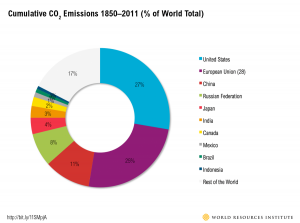 caused climate change. But that is not the standard that we should apply here. We do not need to be certain. Given the potentially disastrous consequences that climate change could have on hundreds of millions of people around the world, a huge percentage of whom are poor and ill-equipped to effectively prepare or adapt to what could be coming, wouldn’t you think that the “country that stands above all other countries in the world” would want to lead? Especially given the fact that the Unites States currently emits 15-20% of all greenhouse gases and is responsible for a much larger percentage of those emitted to date? According to many research studies, a large percentage those who rally against U.S. efforts to combat climate change identify themselves as devout, practicing Christians. Do they think that “loving thy neighbor” involves putting hundreds of millions of the world’s poorest people at risk?
caused climate change. But that is not the standard that we should apply here. We do not need to be certain. Given the potentially disastrous consequences that climate change could have on hundreds of millions of people around the world, a huge percentage of whom are poor and ill-equipped to effectively prepare or adapt to what could be coming, wouldn’t you think that the “country that stands above all other countries in the world” would want to lead? Especially given the fact that the Unites States currently emits 15-20% of all greenhouse gases and is responsible for a much larger percentage of those emitted to date? According to many research studies, a large percentage those who rally against U.S. efforts to combat climate change identify themselves as devout, practicing Christians. Do they think that “loving thy neighbor” involves putting hundreds of millions of the world’s poorest people at risk?
I fully acknowledge that really making an impact on climate change is not going to be easy and will require a global effort. If it was easy and there were no negative tradeoffs, there would be far fewer people questioning the science and more agreement on taking pragmatic steps in the likelihood that these predictions are true. However, as JFK once said about our country’s mission to land a person on the Moon, “we do these things not because they are easy, but because they are hard.” 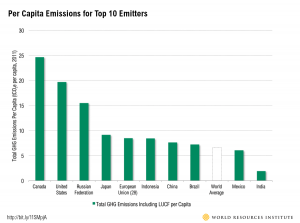 If the United States wants to retain its position as the only global superpower and Americans want to be able look at themselves in the mirror with a straight face when they assert their belief in American Exceptionalism, then I personally think we need to recognize that we are one of the largest contributors to what could be a massive humanitarian crisis, one that would very disproportionately harm those who are least able to protect themselves. Our leadership is needed to get others like China and India to take proactive steps as well, whose cooperation is necessary to truly combat climate change. Can you imagine if another country like Canada or Russia was doing something that over 97% of scientists thought would greatly harm the United States, and the Canadian or Russian people and politicians were debating the science as we watched helpless from abroad, knowing the political jockeying was threatening our survival?
If the United States wants to retain its position as the only global superpower and Americans want to be able look at themselves in the mirror with a straight face when they assert their belief in American Exceptionalism, then I personally think we need to recognize that we are one of the largest contributors to what could be a massive humanitarian crisis, one that would very disproportionately harm those who are least able to protect themselves. Our leadership is needed to get others like China and India to take proactive steps as well, whose cooperation is necessary to truly combat climate change. Can you imagine if another country like Canada or Russia was doing something that over 97% of scientists thought would greatly harm the United States, and the Canadian or Russian people and politicians were debating the science as we watched helpless from abroad, knowing the political jockeying was threatening our survival?
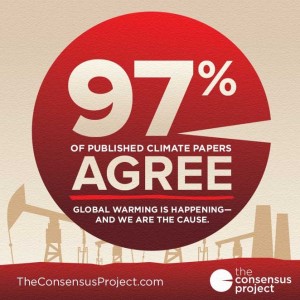 It is time to realize that even if you believe that climate change is only possible, we have a responsibility as the greatest country in the world to do something about it. Not just because we are one of the largest causes of this risk, and not just because we have the resources to do something about it, and not just because climate change could really harm the United States and our personal interests. I intentionally did not focus on the potentially dire impacts that climate change could have on the U.S. Rather, we have a moral obligation as human beings and as citizens of the greatest country on the planet to those hundreds of millions of people whose lives, homes, families and way of life we are putting at risk. If we want America to be exceptional through the 21st century and beyond, then leading a pragmatic, global effort to limit the risks posed by climate change is a great place to start.
It is time to realize that even if you believe that climate change is only possible, we have a responsibility as the greatest country in the world to do something about it. Not just because we are one of the largest causes of this risk, and not just because we have the resources to do something about it, and not just because climate change could really harm the United States and our personal interests. I intentionally did not focus on the potentially dire impacts that climate change could have on the U.S. Rather, we have a moral obligation as human beings and as citizens of the greatest country on the planet to those hundreds of millions of people whose lives, homes, families and way of life we are putting at risk. If we want America to be exceptional through the 21st century and beyond, then leading a pragmatic, global effort to limit the risks posed by climate change is a great place to start.
Greg Willsey is a Partner at Monogram Capital Partners, a consumer-focused private equity firm located in Los Angeles. He works across all aspects of investments, from sourcing and diligence to deal structuring and operations. Prior to joining Monogram, Greg was an executive at POM Wonderful, the global leader in pomegranate juice and related products. He was an Engagement Manager at McKinsey & Company before that, where he focused on the consumer, media & entertainment, and private equity industries. Greg is a graduate of Harvard Business School and Harvard Law School, as well as The Calloway School of Business at Wake Forest University. He currently resides in Santa Monica.


